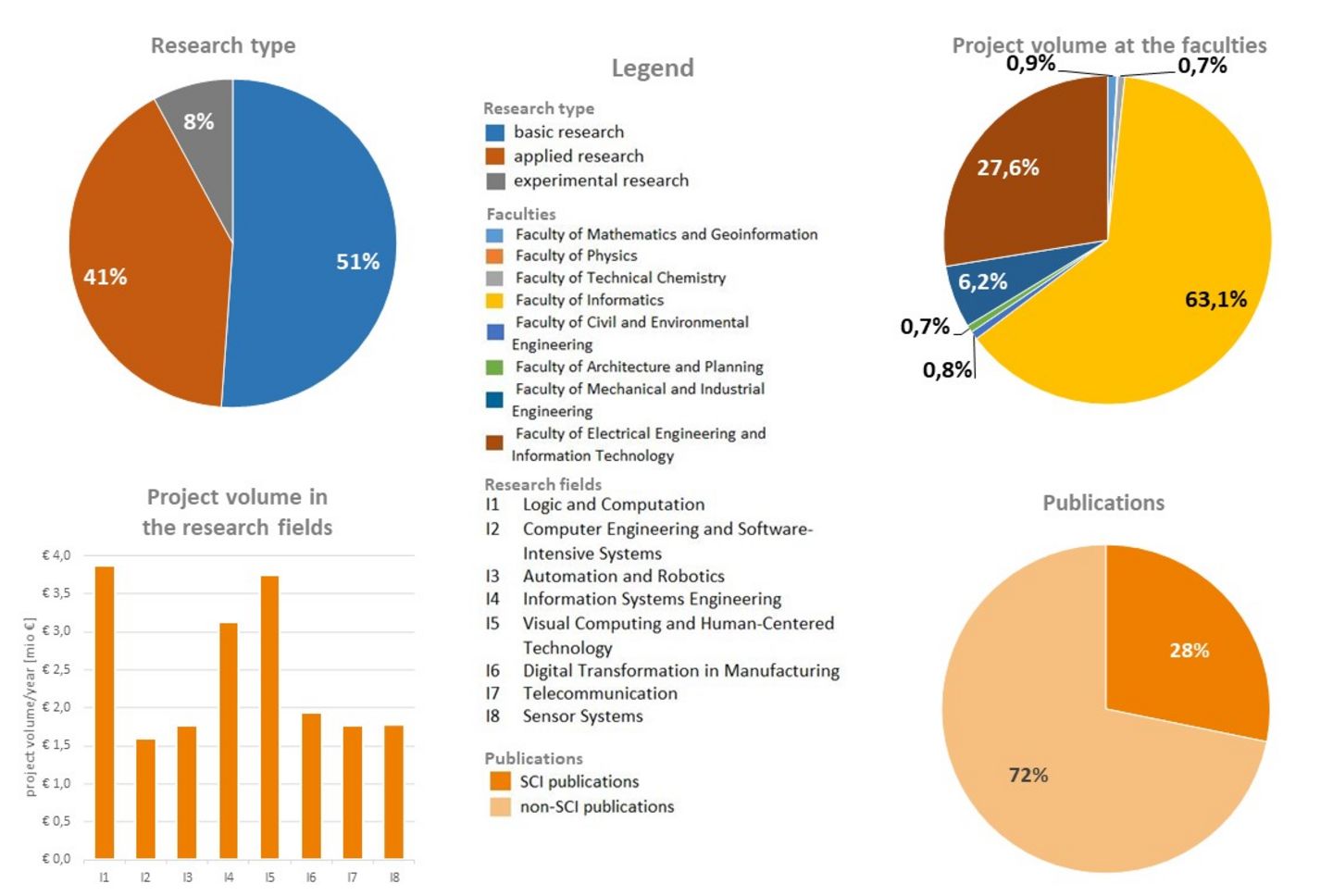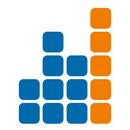Information and Communication Technology
From smartphones to robots: TU Wien is helping to make the digital world more people-friendly, secure and intelligent. Which innovations will future generations talk about when they discuss the biggest technological leaps of today? There is one area they simply cannot ignore, and that is information and communication technology (ICT).
Technology that lets us talk to each other
Electronic data processing, mobile communications and the internet have completely changed our lives and this revolution is still going on today. TU Wien is extremely well equipped to make a significant contribution to this key area that is of such great social and commercial significance. Whether in relation to mobile telephones or the internet, fibre-optic cables or microchips, in many cases data transfer and data processing cannot be considered separately. Hardware and software aspects must be included together in the research. Only a large research organisation like TU Wien can effectively draw these different topics together.
Data and ideas networks
The theoretical basis of this research focal area lies in formal logic. Several decades ago it was still a purely abstract basic research field; today, it drives the software industry. More powerful computers and faster data transfer are continually opening up new fields of research. Telecommunications must keep pace with increasing demand and computer networks and large parallel computers must be planned and operated efficiently. The internet is still bringing us new opportunities and confronting us with fresh challenges, such as data security. The working relationship between people and computers is being freshly thought through, and virtual realities and modern visualisation technologies are being developed.
It is routine today for our computers to be networked worldwide. TU Wien is investigating how these networks might become even more comprehensive and more dense. Cars that communicate automatically should make street traffic safer and networked buildings and equipment should save energy – an 'internet of things' is emerging.
The world is networking and we are networking with it.
- Logic and Computation
- Computer Engineering and Software-Intensive Systems
- Automation and Robotics
- Information Systems Engineering
- Visual Computing and Human-Centered Technology
- Digital Transformation in Manufacturing
- Telecommunication
- Sensor Systems
The research focal area Information and Communication Technology is particularly of interest in the Faculty of Informatics and the Faculty of Electrical Engineering and Information Technology, around 88 research groups are involved.
The third-party funding obtained in 2019-2021 for research projects in ICT is approximately EUR 19.6 million per year (around 230 projects). Several prestigious Christian Doppler Laboratories were opened during this period. COMET projects, a Laura-Bassi project, ERC and START Grants, as well as a Special Research Programme prove that this research focal area drives forward both applied research and basic research with a high degree of academic quality – the academic output is reflected in over 720 publications per year.

Breakdown of project volume by share of research types and share of faculties, project volume in the individual research fields, and breakdown of publications
In the research focal area Information and Communication Technology, 51% basic research, 41% applied research and 8% experimental development is carried out.
The project volume is divided among the faculties as follows: 0.9% Mathematics and Geoinformation, 0.1% Physics, 0.7% Technical Chemistry, 63.1% Informatics, 0.8% Civil and Environmental Engineering, 0.7% Architecture and Planning, 6.2% Mechanical and Industrial Engineering, and 27.6% Electrical Engineering and Information Technology.
The project volume in the individual research fields can be represented as follows: EUR 3.8 million in the research field Logic and Computation, EUR 1.6 million in the research field Computer Engineering and Software-Intensive Systems, EUR 1.8 million in the research field Automation and Robotics, EUR 3.1 million in the research field Information Systems Engineering, EUR 3.7 million in the research field Visual Computing and Human-Centered Technology, EUR 1.9 million in the research field Digital Transformation in Manufacturing, EUR 1.8 million in the research field Telecommunication and EUR 1.8 million in the research field Sensor Systems.
The publications are divided into 28% SCI publications and 72% non-SCI publications.
- Institute of Sensor and Actuator Systems
-
Institute of Electrodynamics, Microwave and Circuit Engineering
The selection relates to the size of the project volume in the specified period, as well as the proportion of the project volume in the key area of research, the institute project volume, and the proportion of publications.
All data and information provided relates to the research period 2019-2021 (based on the period of the Performance Agreement).
